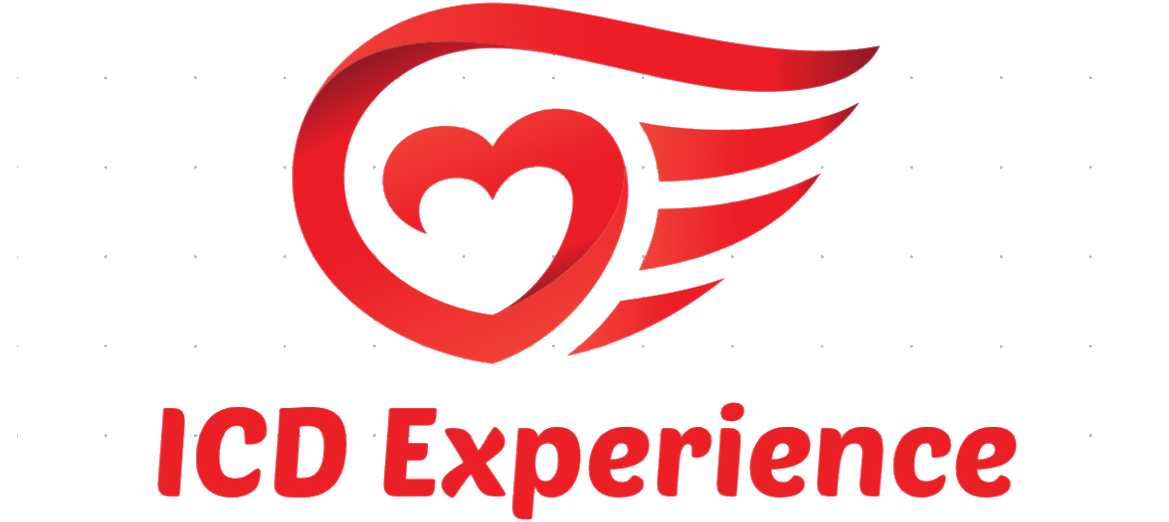Living with an Implantable Cardioverter Defibrillator (ICD) brings profound changes to daily life. From medication management to stress relief, the need to build a structured and supportive routine is essential for maintaining both physical health and emotional well-being. Whether you’re newly implanted or have lived with an ICD for years, developing a routine that seamlessly integrates the demands of your condition is crucial. This guide will help you establish habits that support your heart health while allowing you to lead a fulfilling life.
Morning Routine: Starting the Day Right
Mornings are an ideal time to set the tone for the day. Living with an ICD requires careful attention to your health from the moment you wake up. Begin with a simple health check—this could involve monitoring your pulse or blood pressure to ensure that everything is within a healthy range. While your ICD automatically monitors your heart, being aware of your body’s signals can help you catch any irregularities early. For more details on how to monitor your health at home, you might find this guide on heart health monitoring helpful.
Medication management is a key aspect of your morning. If your treatment plan includes medication, taking it at the same time each day is critical. Setting a reminder on your phone or using a pill organizer can help you keep track of your regimen. Consistency not only supports your heart health but also reduces the anxiety of forgetting a dose. Check out our guide on managing medications effectively to keep your routine on track.
Incorporating gentle exercise into your morning routine can also have significant benefits. Activities like stretching or a short walk help to get your blood flowing and prepare you mentally and physically for the day ahead. Exercise also releases endorphins, which can elevate your mood and reduce stress, setting a positive tone for the day. However, always consult with your healthcare provider before starting any new exercise routine to ensure it’s safe for your specific condition. You can find additional advice on safe exercises for ICD patients in our activities section of this blog page..
Maintaining Energy and Focus Throughout the Day
As the day progresses, maintaining your energy levels and focus becomes essential, especially when managing an ICD. Nutrition plays a critical role in sustaining your energy. Focus on a balanced diet rich in fruits, vegetables, lean proteins, and whole grains. These foods not only fuel your body but also support heart health, which is particularly important when living with an ICD. Explore more on heart-healthy nutrition for more tips.
Staying hydrated is equally important. Dehydration can lead to increased strain on your heart, so make it a habit to drink water throughout the day. Carrying a water bottle with you ensures that you’re consistently replenishing fluids, helping to maintain optimal body function.
Managing stress is another crucial aspect of your midday routine. Stress can negatively impact your heart health, so it’s important to incorporate relaxation techniques into your day. Taking short breaks to practice deep breathing, meditate, or simply enjoy a few moments of quiet can help you reset and reduce stress. Engaging in a hobby or taking a brief walk can also be effective ways to manage stress and maintain mental clarity.
Evening Routine: Unwinding and Preparing for Rest
The evening is a time to unwind and reflect on your day. An effective evening routine helps you transition into rest mode and ensures that you’re ready for the next day. Reflecting on your day can be a helpful way to monitor your health. Take note of how you’re feeling, any symptoms you experienced, and anything that might have affected your well-being. This reflection can guide adjustments to your routine and provide valuable information for discussions with your healthcare provider.
Just as in the morning, medication management is essential in the evening. Ensuring that you take your prescribed medications on time is crucial for maintaining a stable condition. Keeping a journal where you log your medication intake can help you stay organized and provide a clear record for your doctor.
Incorporating relaxation techniques into your evening routine can promote better sleep. Activities like reading, gentle stretching, or listening to calming music can help signal to your body that it’s time to wind down. Creating a consistent bedtime ritual helps regulate your sleep patterns, contributing to overall better rest and recovery.
Creating a Supportive Environment
Your environment plays a significant role in how effectively you can maintain your routine. A supportive environment includes both your physical space and the people around you. Keeping your space organized can make it easier to manage your routine. Ensure that your medications, health tools, and other necessities are easily accessible and well-organized. This reduces stress and helps you stick to your routine more effectively.
Involving your family and friends in your routine can also provide essential support. Sharing your schedule and needs with them allows them to assist you when necessary, whether it’s reminding you to take medications, accompanying you to appointments, or simply being there for emotional support.
Staying Active with an ICD
Physical activity remains a cornerstone of a healthy lifestyle, even for those living with an ICD. However, it’s important to approach exercise with caution and tailor it to your specific needs. Choosing low-impact activities like walking, swimming, or cycling is generally safe, but always consult your healthcare provider before starting any new exercise regimen. Monitoring your heart rate during exercise ensures you’re staying within a safe range, and starting slowly with gradual progression helps build your fitness level without overexertion.
Prioritizing Quality Sleep
Quality sleep is crucial for everyone, but especially for those with an ICD. Poor sleep can exacerbate stress, fatigue, and other health issues. Creating a sleep-conducive environment—such as maintaining a cool, dark, and quiet bedroom—can significantly improve your sleep quality. Establishing a consistent sleep routine helps regulate your body’s internal clock, ensuring you wake up rested and ready to face the day.
If you experience symptoms like palpitations or anxiety at night, it’s important to address these with your healthcare provider. They may suggest adjustments to your medication or other strategies to help you sleep better.
The Role of Diet and Nutrition
Diet and nutrition are key components of managing your heart health. Adopting a heart-healthy diet rich in fruits, vegetables, whole grains, and lean proteins supports your overall well-being. Portion control is equally important; overeating can lead to weight gain, which puts additional strain on your heart. Staying hydrated is another critical factor, as dehydration can negatively impact heart function.
Limiting your intake of alcohol, caffeine, and sugary drinks is also important. These substances can increase heart rate and blood pressure, potentially triggering your ICD. Opt for water, herbal teas, and other low-calorie, caffeine-free beverages to support your heart health.
Emotional and Mental Well-being
Living with an ICD can be emotionally challenging. It’s normal to experience a range of emotions, from anxiety and fear to frustration and sadness. Addressing your mental and emotional well-being is as important as managing your physical health. Seeking support, whether through therapy, support groups, or trusted loved ones, can provide much-needed relief and help you process your experiences.
Incorporating mindfulness and relaxation techniques into your daily routine can help manage stress and anxiety. Practices like meditation, deep breathing, and progressive muscle relaxation can calm your mind and reduce the physical symptoms of stress. Staying connected with loved ones and participating in social activities can also support your mental health, helping you feel less isolated and more supported.
Regular Health Monitoring and Doctor Visits
Regular health monitoring and keeping up with doctor visits are essential aspects of managing daily life with an ICD. These steps help ensure your ICD is functioning properly and that your overall health is on track. Many ICDs come with home monitoring devices that allow your doctor to remotely check your heart rhythm and the performance of your ICD. Understanding how to use your monitoring device and reporting any issues to your healthcare provider promptly is crucial.
Scheduled check-ups with your cardiologist are equally important. These appointments allow your doctor to assess your heart health, review any changes in your condition, and make necessary adjustments to your treatment plan. Keeping a record of your symptoms, questions, and concerns helps make the most of these visits.
Staying informed about your condition and any advancements in ICD technology is also important. Being knowledgeable about your condition empowers you to make informed decisions about your care and stay proactive in managing your health.
Conclusion: Embracing Life with an ICD
Building a routine that accommodates your ICD is a powerful way to regain control of your life and ensure you’re living in a way that supports your health and well-being. By establishing consistent habits around ICD management, exercise, diet, sleep, and mental health, you can navigate the challenges of living with an ICD with confidence and grace.
Remember, your routine doesn’t have to be rigid. Flexibility is key, as is listening to your body and making adjustments as needed. With a well-structured routine, the support of loved ones, and regular communication with your healthcare provider, you can embrace daily life with an ICD and continue to pursue the activities and goals that bring you joy and fulfillment.












